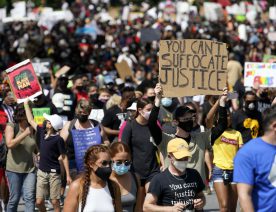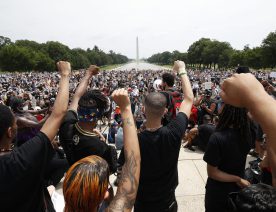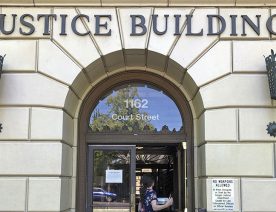
May 21, 2021
Nearly a year after the death of George Floyd at the hands of a white police officer, Americans remain more likely than they were before his death to say that police violence is a serious problem, but relatively few say attention in the past year to the issue has led to positive change.
The survey, which was completed after the conviction of former Minneapolis police officer Derek Chauvin for murdering Floyd, also shows about half of Americans still think police who cause harm on the job are treated too leniently by the justice system. Similarly, most people say the guilty verdict in the Chauvin trial has not improved their view of the criminal justice system. Large majorities of the public continue to support the implementation of many policies aimed at reducing police violence, and most Americans say the country’s criminal justice is in need of serious transformation.
While most Americans say that racism remains a serious problem in this country, there are large gaps in how Black and white Americans view both racism and police violence.
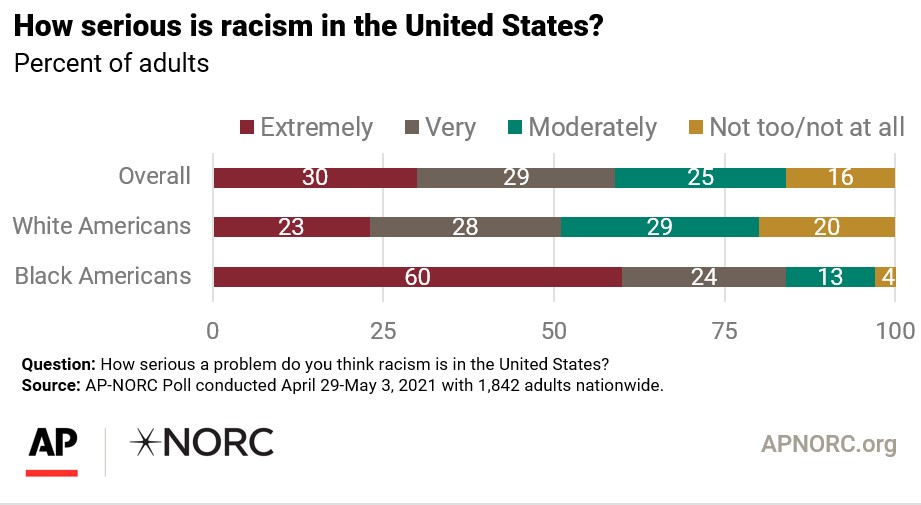
Forty-five percent of the public, including 36% of white and 77% of Black Americans say police violence against civilians is very or extremely serious. Nearly the same proportion of the country, 42%, consider violence against police to be extremely or very serious.
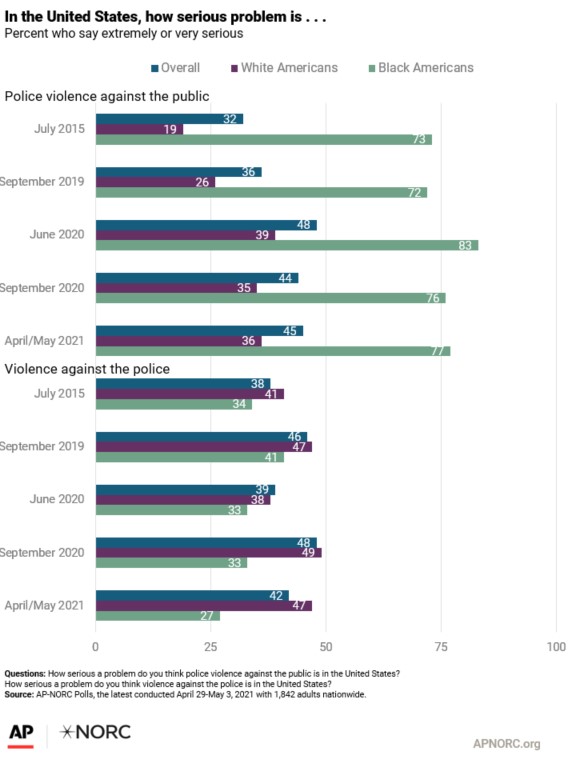
Initially triggered by the murder of George Floyd on May 25, 2020, there have been protests against police violence and racism across the country for the past year. But few Americans think that attention is yielding positive change.
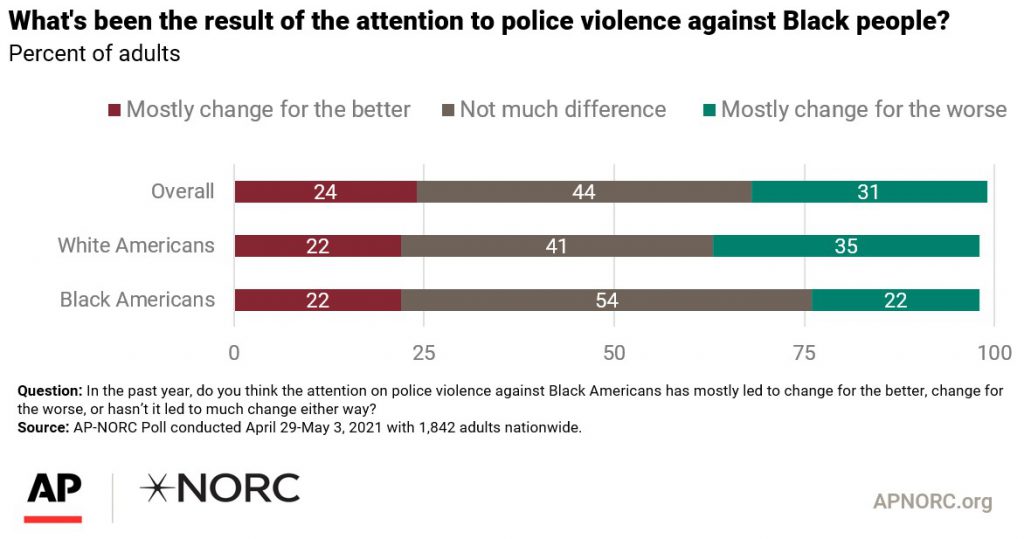
Indeed, 43% of all Americans and 68% of Black Americans think discrimination against Black people has increased over the past year. Sixty percent of the public say Black Americans face a lot of discrimination in the United States these days; 84% of Black adults agree.
Sixty percent of Black adults say they have been discriminated against often or sometimes by law enforcement. Black Americans also report frequent discrimination when shopping, looking for a job, or applying for housing or a loan. Very few white Americans report the same experiences.

Although the number of Americans who say police are more likely to use deadly force against Black people than white people is down from the results found in an AP-NORC survey conducted soon after George Floyd’s death, a majority– including nearly all Black Americans – still think the police are more likely to use lethal force against Black people than white people.
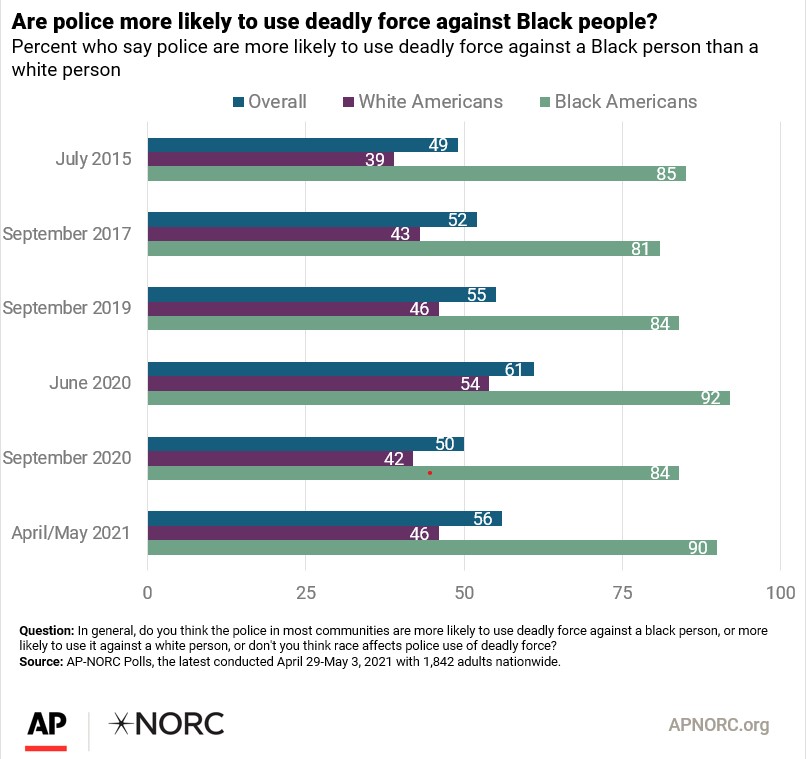
About half of the public — including 45% of white and 72% of Black adults – think police officers who cause injury or death in the course of their job are not treated strictly enough by the justice system. This is higher compared with 2015, but down from June 2020 when a majority of Americans, regardless of race, said police officers are treated too leniently.
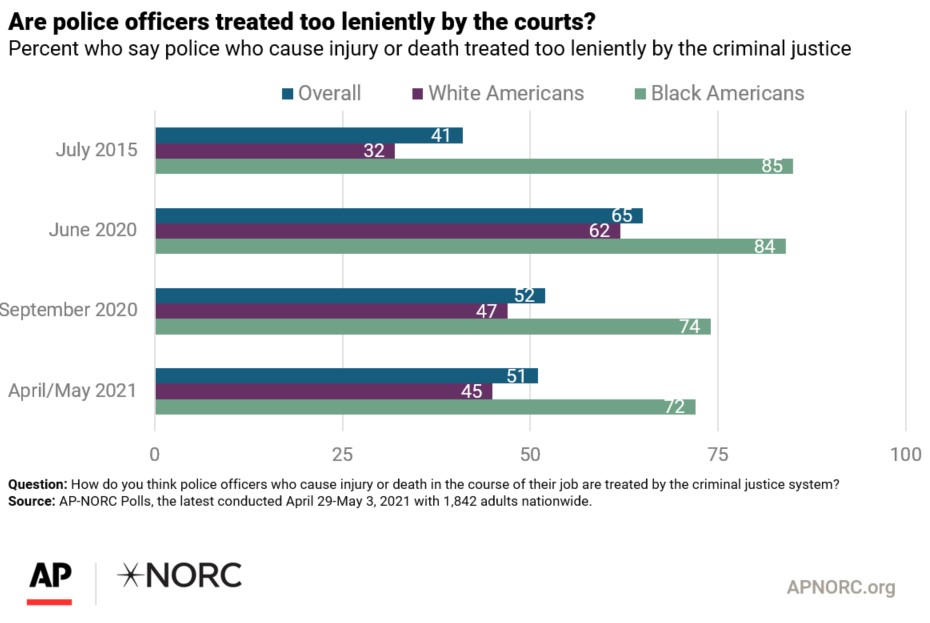
The public agrees that several reforms could help prevent police violence against civilians. Americans, regardless of race, strongly support policies including body cameras, holding police accountable for excessive force, racially biased policing, and misconduct by their peers, creating criteria for the use of force, requiring racial bias training, and establishing civilian review boards. Less than half of the public support limiting the use of military equipment or reducing focus on low-level offenses only 21% support the reduction of funding for law enforcement.

More than two-thirds of the public feel the criminal justice system needs either major changes or a complete overhaul. While Black Americans are more likely than white Americans to want a complete transformation, they are less inclined to say so now in the wake of the Chauvin conviction than they were immediately after George Floyd’s death.
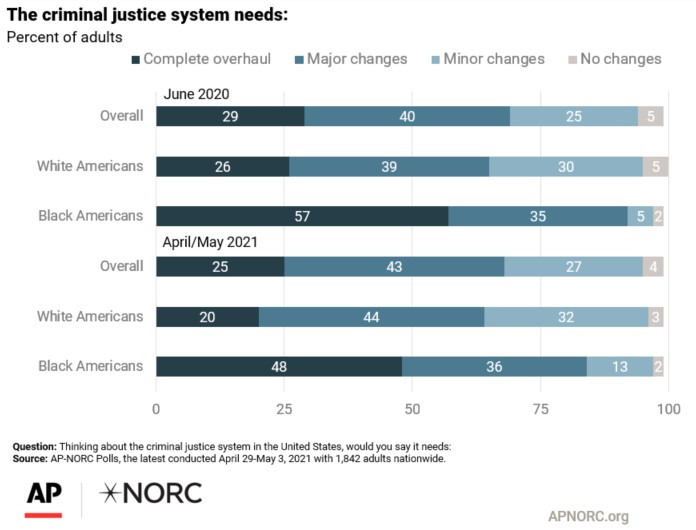
On April 21, Chauvin was convicted of murder and manslaughter in the death of George Floyd after three weeks of testimony. Seventy-eight percent read or heard at least something about Chauvin’s trial. For 35% Chauvin’s conviction strengthened their faith in the criminal justice system. Most report no impact on their confidence.
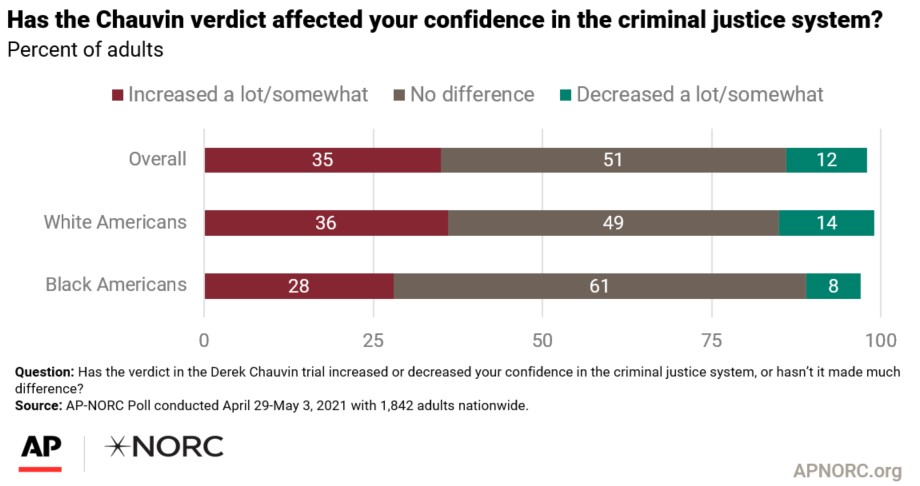
The public are in favor of several reforms to the criminal justice system, including programs to help prisoners integrate back into society, as well as shorter sentences for, and alternatives to, prison for first-time offenders. There is less support for pre-trial release without bail for first-time non-violent offenders.
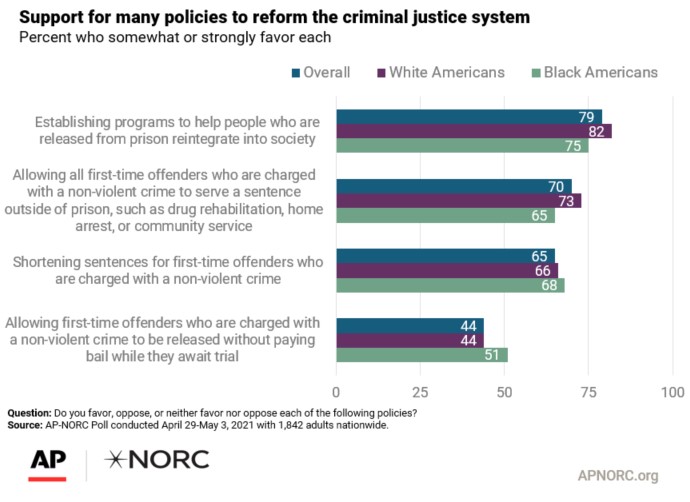
In contrast to his predecessor, most Americans approve of how President Biden is handling race relations and policing, particularly among Black Americans. Thirty-five percent of the public approved of Donald Trump’s handling of race relations in October 2020, including 42% of white Americans and 12% of Black Americans.

The nationwide poll was conducted April 20-May 3, 2021 using the AmeriSpeak® Panel, the probability-based panel of NORC at the University of Chicago. Online and telephone interviews using landlines and cell phones were conducted with 1,842 adults. The margin of sampling error is +/- 3.2 percentage points.
In addition, Black adults were sampled at a higher rate than their proportion of the population for reasons of analysis. The overall margin of sampling error for the 411 completed interviews with Black respondents is +/- 6.0 percentage points.
• Suggested Citation: AP-NORC Center for Public Affairs Research. (May, 2021). “George Floyd’s Death: One Year Later” [apnorc.org/george-floyds-death-one-year-later]





